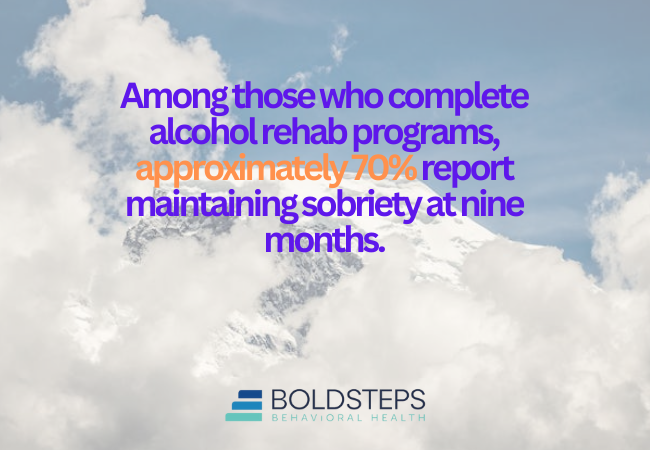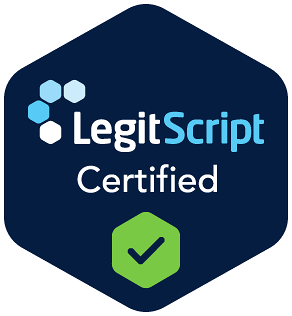Addiction is a life-altering condition, and the decision to seek help is a courageous step toward recovery. However, not all substance addictions are the same, and the approaches to treating them can differ significantly. While drug and alcohol addiction share some similarities in their effects and treatment, the nuances of each require specialized care. Understanding the differences between drug rehabilitation centers and alcohol rehabilitation centers can help individuals and families make informed decisions about the best course of action.
At Bold Steps Behavioral Health, we offer comprehensive programs tailored to meet the unique needs of individuals struggling with either drug or alcohol addiction. In this guide, we’ll delve deeply into the similarities, differences, and specialized approaches of these two types of rehabilitation centers.
Similarities Between Drug and Alcohol Rehabilitation Centers
Before exploring their differences, it’s important to understand the foundational elements that both types of centers share. Whether an individual is seeking help for drug or alcohol addiction, the primary goal is to achieve and maintain long-term recovery through evidence-based, compassionate care.
Core Similarities Include:
- Medically Supervised Detoxification
- Both types of centers prioritize safe detoxification to manage withdrawal symptoms effectively.
- Medical supervision ensures that complications during detox are handled promptly.
- Therapeutic Interventions
- Therapy is central to recovery, with both drug and alcohol rehab centers offering Cognitive Behavioral Therapy (CBT), Dialectical Behavior Therapy (DBT), group therapy, and family counseling.
- Aftercare and Relapse Prevention
- Structured aftercare programs help individuals maintain sobriety post-treatment.
- Relapse prevention strategies equip individuals with the tools needed to manage triggers and stressors.
- Levels of Care
- Both centers provide varying levels of care, such as:
- Partial Hospitalization Programs (PHPs)
- Intensive Outpatient Programs (IOPs)
- Outpatient Treatment
- Both centers provide varying levels of care, such as:
While these foundational elements remain consistent, the differences lie in the nuances of treatment protocols, therapeutic approaches, and recovery strategies tailored to each type of addiction.
Key Differences Between Drug and Alcohol Rehabilitation Centers
Detoxification Protocols
Detox is a critical first step in addiction treatment, but the process varies significantly between drug and alcohol addiction.
Drug Detox
- Opiate Addiction Treatment: Medication-Assisted Treatment (MAT) is often employed using methadone, buprenorphine, or naltrexone to alleviate withdrawal symptoms and cravings.
- Benzodiazepine Treatment: Requires a gradual tapering process to prevent severe withdrawal symptoms like seizures or psychosis.
- Stimulants Treatment: Focuses on managing psychological withdrawal symptoms, including depression, anxiety, and fatigue.
Alcohol Detox
- Alcohol Withdrawal: Symptoms can range from mild to severe, with complications like seizures and delirium tremens (DTs) being potentially life-threatening.
- Medication Support: Benzodiazepines and anticonvulsants are commonly used to manage withdrawal safely.
- Nutritional Therapy: Thiamine and other supplements are administered to prevent conditions like Wernicke-Korsakoff syndrome caused by chronic alcohol use.
Each type of detox requires specialized medical expertise to ensure a safe and effective transition into the rehabilitation phase.
Focus of Therapy
While therapy is central to both drug and alcohol rehabilitation, the focus and methods often differ.
Drug Rehabilitation Centers
- Substance-Specific Therapy: Programs are tailored to the specific substance being abused, such as opioids, benzodiazepines, or stimulants.
- Addressing Neurological Impact: Drugs like stimulants and opioids cause significant neurological changes, and therapy often focuses on cognitive repair and emotional regulation.
- Polysubstance Use: Many individuals use multiple drugs, requiring integrated treatment plans to address all substances involved.
Alcohol Rehabilitation Centers
- Behavioral and Social Integration: Therapy often emphasizes strategies for navigating social settings where alcohol use is normalized.
- Long-Term Health Risks: Education and support for managing conditions like liver disease and cardiovascular health are key components.
- Relational Dynamics: Alcohol addiction often impacts family and social relationships deeply, so programs place a strong focus on repairing these connections.
Relapse Triggers and Prevention Strategies
Drug Addiction
- Environmental Triggers: Drug addiction is often tied to specific environments or peer groups, making trigger management a priority.
- Cravings Management: MAT is frequently used as part of relapse prevention to reduce cravings.
Alcohol Addiction
- Social Triggers: Alcohol addiction is often intertwined with social events, requiring strategies for managing situations where alcohol is present.
- Cultural Norms: Therapy may address the societal acceptance of alcohol and help individuals develop alternative coping mechanisms.
Duration of Treatment
The length of treatment can vary depending on the substance and severity of addiction.
Drug Addiction
- Detox durations vary significantly based on the drug. For instance, benzodiazepine detox can take weeks due to the need for gradual tapering, while stimulant detox may be shorter.
- Rehabilitation may focus on extended care for those recovering from opioids or polysubstance abuse.
Alcohol Addiction
- Detox may be shorter for alcohol, but rehabilitation often requires extended focus on behavior modification and relapse prevention due to alcohol’s pervasive role in daily life.
Specialized Programs for Drug and Alcohol Addiction
The best rehabilitation centers for drugs and alcohol provide specialized programs designed to address the unique challenges associated with each substance.
Drug Rehabilitation Centers
- Opiate Addiction Treatment: Incorporates MAT, therapy, and relapse prevention.
- Stimulants Treatment: Focuses on psychological recovery and building self-esteem.
- Benzodiazepine Treatment: Gradual detox combined with anxiety management therapies.
Alcohol Rehabilitation Centers
- Behavioral Strategies: Focus on creating healthy routines and addressing social pressures.
- Nutritional Counseling: Rebuilding health after prolonged alcohol abuse.
- Family Counseling: Repairing relationships and educating families about addiction.
Why Both Types of Centers Are Essential
Addiction is not a one-size-fits-all condition. The differences between drug and alcohol rehabilitation centers highlight the importance of specialized care. Each type of center is equipped to address the unique challenges posed by different substances, ensuring individuals receive the targeted support they need.
Why Choose Bold Steps Behavioral Health?
At Bold Steps Behavioral Health, we understand the nuances of drug and alcohol addiction and provide tailored programs to meet each client’s unique needs.
What We Offer:
- Comprehensive Detox Services: Safe, medically supervised detox programs for both drugs and alcohol.
- Personalized Care Plans: Tailored to address specific substances and individual circumstances.
- Evidence-Based Therapies: Including CBT, DBT, and family therapy.
- Holistic Approaches: Incorporating mindfulness, yoga, and nutritional support.
- Experienced Staff: Licensed professionals with expertise in addiction treatment.
- Aftercare Support: Relapse prevention planning, alumni programs, and ongoing therapy.
Take the First Step Toward Recovery
Choosing the right rehabilitation center is a crucial step in the recovery process. At Bold Steps Behavioral Health, we provide compassionate, specialized care for both drug and alcohol addiction, helping individuals reclaim their lives and build a brighter future.
Contact us at (603) 915-4223 or visit Bold Steps Behavioral Health to learn more about our programs and take the bold step toward lasting recovery today.
Frequently Asked Questions (FAQs)
What is the difference between a drug rehabilitation center and an alcohol rehabilitation center?
Drug and alcohol rehabilitation centers differ in their detox protocols, therapeutic approaches, and relapse prevention strategies, tailored to the specific substance being treated.
Do both drug and alcohol rehab centers offer detox services?
Yes, both provide medically supervised detox services to safely manage withdrawal symptoms, though the protocols vary based on the substance.
What therapies are common in both drug and alcohol rehab centers?
Both types of centers often use Cognitive Behavioral Therapy (CBT), Dialectical Behavior Therapy (DBT), group therapy, and family counseling as core treatments.
How does detox differ between drugs and alcohol?
Drug detox may involve Medication-Assisted Treatment (MAT) for substances like opioids, while alcohol detox focuses on preventing severe complications like seizures or delirium tremens.
Are the triggers for relapse different between drugs and alcohol?
Yes, drug relapse triggers often involve environmental factors, while alcohol relapse triggers can include social and cultural influences where alcohol use is normalized.
What specialized programs do drug rehab centers offer?
Drug rehab centers provide specific programs for substances like opioids, stimulants, and benzodiazepines, addressing their unique withdrawal symptoms and psychological impacts.
What specialized programs do alcohol rehab centers offer?
Alcohol rehab centers focus on behavioral strategies, nutritional counseling, and social reintegration to help individuals navigate situations where alcohol is present.
How long does treatment typically last at a rehab center?
Treatment length varies but often depends on the substance, severity of addiction, and individual needs. Both drug and alcohol rehab programs can range from 30 to 90 days or longer.



